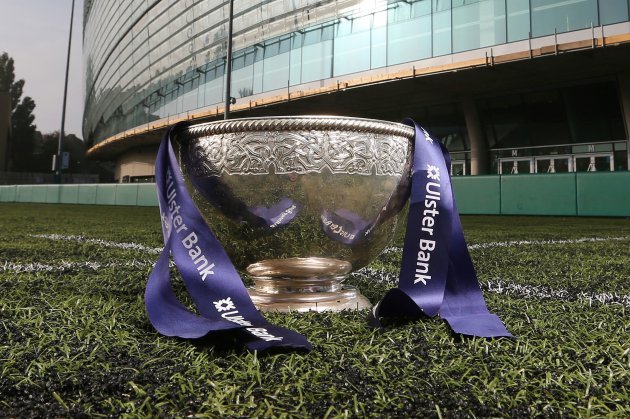THE ALL-IRELAND LEAGUE returns tomorrow and not much has changed since last season. Support will largely come from the loyal servants of the domestic game, those hardy spirits who return year after year to keep the club game alive in Ireland.
That’s despite the feeling from many insiders that the quality is improving every year, a sentiment strongly backed up by the fact that last season’s Division 1A Player of the Year, Craig Ronaldson, starts at outhalf for Connacht against the Ospreys tomorrow.
The IRFU published a Club Sustainability Report in April of this year, from which the major talking point was the the intention to address the development of what the report dubs a “pay for play” culture in the club game. Following the recommendations made by the Working Party in charge of compiling the report, the All-Ireland League will see several changes for the 2014/15 season.
Amongst the alterations, payments to club players will be prohibited, transfers will be strictly controlled and clubs will have to meet minimum qualifying criteria to earn involvement in the All Ireland League. This season will operate under the current rules and regulations before the IRFU imposes those recommendations in 2014.
Steve Rooney, Director of Rugby at Lansdowne, feels that the current status quo has served the club game well, and doesn’t see the immediate need for change. One potential danger of removing financial incentives is that the league will lose young players who still have professional ambitions despite missing out on academy contract with the provinces.
“The problem I see is young, aspiring guys in club rugby will end up heading over to play for the likes of Plymouth or whoever. I think these lesser teams in the Championship in England don’t really count as professional rugby.
These young guys would be better served by staying here. Craig is a very good example, he would have had offers to go to the Championship. So it could make it more difficult for clubs to retain those kind of players.”
Rooney sees increased exposure for the league as the key to future growth, and says that regular TV coverage for what is “very watchable” rugby would be a hugely welcome addition. The fact that the AIL’s kick-off times usually clash with other televised sport means there needs to be creative thinking in regards to achieving that goal.
Lansdowne are hoping to retain the Division 1A title. ©INPHO/Billy Stickland
The Lansdowne man highlights one discussion he has had with a member of the IRFU’s marketing team where televised AIL matches on a Wednesday night were suggested. It would certainly make sense, and would act as a way of introducing new fans to the domestic game.
Many Irish rugby supporters discovered their love of the game through watching their provinces, and there is almost a lack of realization that we have an exciting club game too.
As Lansdowne prepare to defend their Divison 1A crown, Shannon find themselves a step below in Division 1B. The Limerick club have been one of the historic powers in the All-Ireland league, with a total of nine titles to their name.
In a sign on the times, Director of Rugby Ian Sherwin is using an increasingly young squad as Shannon look to bounce back up into the top tier. The former Munster academy manager played in the AIL during its 1990 heydays, so is well placed to judge whether or not the quality has changed.
“I don’t think it is what it used to be. Craig obviously did really well at Lansdowne last year, but I think the bridge between the club and professional game is getting wider.”
“The clubs are doing their best to create successful teams, but it’s hard to know where the players are going to end up. That said, the academies need the All-Ireland league to find players. In that regard, it is useful for the younger players, but some clubs are struggling to field teams.”
While Sherwin is unsure whether player payments have been decisive in league positions, and Shannon’s relegation last season, he does see the positives in the IRFU’s insistence that they will be banned from next season. A more level playing field would be welcome.
“It’s probably a good thing that they’re trying to amateurise it, but to be honest I think the clubs are still concerned about being competitive. I’m not sure if it’s something that hamstrung Shannon. The recession has obviously had a big impact on everybody.”
Sherwin echoes Rooney in pointing out that Irish rugby needs to find ways of increasing interest in the domestic game in order to grow, but he also highlights the need for clubs to build a sense of community spirit and increase membership and support in that way too.
“The main thing we’re trying to do with the club is building it as a place that people can meet and play rugby. That’s a big part of what we’re trying to do”
And so, the All-Ireland league finds itself at something of a crossroads. Will the removal of financial incentives eventually reduce the quality of the league? Does the focus need to be on the amateur ethos of rugby? These are questions that need to be answered over the coming season.


